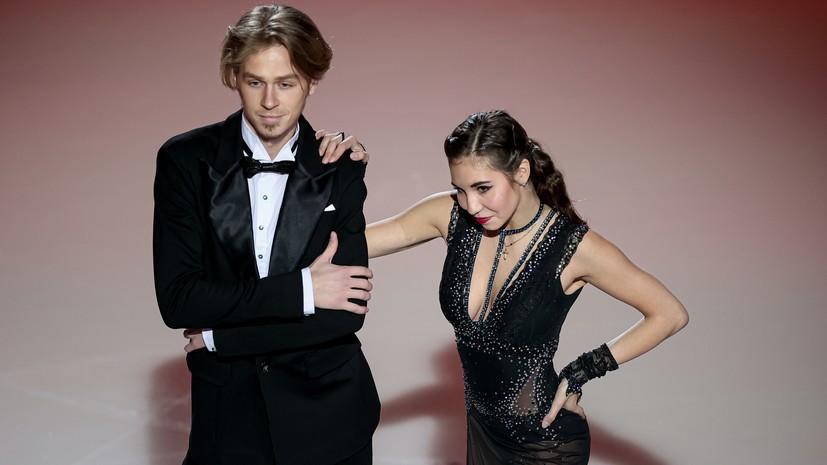Russian dancers Diana Davis and Gleb Smolkin once again found themselves in the spotlight.
The reason was the post of the partner in social networks.
“Due to the fact that we were unable to issue documents to Gleb that allow him to legally leave the country, unfortunately, we will not be able to come to the test skates of the national team,” the skater wrote.
A number of questions immediately arose.
Firstly, when leaving the United States, you do not need to go through passport control at all and show someone the visas in your passport.
This means that the point is not that the couple cannot leave the country, but in a banal fear of not returning to the States after the rentals.
The feeling is completely normal and understandable, especially since Davis and Smolkin have spent a lot of time in America, constantly train there and, perhaps, do not connect their sports future with Russia at all, despite the fact that they constantly refute such assumptions in their social networks.
Why the athletes who spent the previous season in the status of the third and not very interesting couple in terms of results are so actively discussed in the media is also understandable.
Diana is the daughter of Eteri Tutberidze, and this fact alone makes the figure skater a favorite character of journalists.
In addition, the off-season is not the most fertile period for news.
And here you have a secret marriage of partners, which was either formalized or not, and attempts to come under the jurisdiction of the American Figure Skating Federation, which overseas journalists remind with enviable frequency, and visits to the United States by Tutberidze herself, and a forced break with one of the most famous dance coaches in the world Igor Shpilband ...
The question is actually different: why, in the current situation, do the members of the Russian national team, which the country continues to finance, need the opportunity to stay in the United States at all costs?
If Davis and Smolkin are going to continue skating for Russia, the overseas location will add nothing but a headache to them: skaters will not be able to come to certain Russian starts, including the national championship, for the same reason that was announced in relation to the rentals.
Moreover, it is logical to assume that any procedures related to obtaining Smolkin the appropriate permits to stay in the United States may be prolonged.
This, in turn, can jeopardize the entire sports future of the duet under the Russian flag: after spending a year without the opportunity to compete, the skaters will most likely simply fall out of the cage and are unlikely to be able to return.
Still, the competition in dancing at the level at which Diana and Gleb perform is potentially quite high.
With regard to the upcoming rentals, we should probably talk about something else.
From a sporting point of view, this event has always had a completely understandable meaning: to look at the programs of the leaders, note all the technical and staging shortcomings in order to have time to eliminate them before the start of the competitive season, understand what form certain skaters are in, how great their potential and on whom, in fact, to bet in the fight for European and world titles.
In connection with the removal of Russian athletes from international competitions, the sporting meaning of open skates was leveled.
Therefore, the event will become a non-committal performance of skaters in public.
In other words, another show.
Apparently, therefore, participation in them is not mandatory for the skaters of the national team: if the Olympic champion Anna Shcherbakova misses the skates for more than a good reason - due to an injury, then the ex-world champions Victoria Sinitsina and Nikita Katsalapov will not perform in Moscow due to employment in Tatyana Navka's show in Sochi.
Is it worth it to fear that the entire impending Russian season will turn into a show?
The prospect is very real.
After the Russian Figure Skating Federation announced the unprecedented amount of prize money for victories at domestic starts, for all participants, the task automatically comes to the fore in no case to get injured and not fall out of the cage.
And who knows whether this will not pull the subconscious desire of the skaters to insure themselves as much as possible: to abandon the most difficult elements, to save themselves in training, in a word, to eliminate any risk whatsoever?
This, in fact, is the main contradiction: on the one hand, sports progress is possible only if the athlete trains and performs at the limit of his own abilities.
On the other hand, a lot of money is really at stake.
And this, in my opinion, is much more curious than Davis and Smolkin's refusal to come to Moscow.

